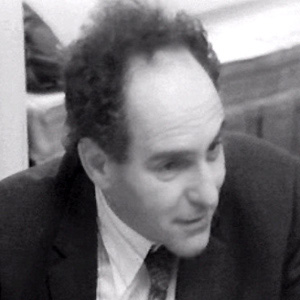Quick Facts

| Full Name | Ernest Gellner |
| Occupation | Philosopher |
| Date Of Birth | Dec 9, 1925(1925-12-09) |
| Age | 101 |
| Date Of Death | 1995-11-05 |
| Birthplace | Paris |
| Country | France |
| Birth City | Île-de-France |
| Horoscope | Sagittarius |
Ernest Gellner Biography
| Name | Ernest Gellner |
| Birthday | Dec 9 |
| Birth Year | 1925 |
| Place Of Birth | Paris |
| Home Town | Île-de-France |
| Birth Country | France |
| Birth Sign | Sagittarius |
Ernest Gellner is one of the most popular and richest Philosopher who was born on December 9, 1925 in Paris, Île-de-France, France. An anthropologist and philosopher of repute known for his research into Critical Rationalism.
The politician and he He and politician Edwina Currie were both associated with the London School of Economics. were both part of both the London School of Economics.
He was raised in Paris.
Ernest Gellner Net Worth
| Net Worth | $5 Million |
| Source Of Income | Philosopher |
| House | Living in own house. |
Ernest Gellner is one of the richest Philosopher from France. According to our analysis, Wikipedia, Forbes & Business Insider, Ernest Gellner 's net worth $5 Million. (Last Update: December 11, 2023)
He was awarded a scholarship to Balliol College, Oxford, at the age of 17.
He was a philosopher in the London School of Economics for 22 years.
Height, Weight & Body Measurements
Ernest Gellner height Not available right now. Ernest weight Not Known & body measurements will update soon.
Who is Ernest Gellner Dating?
According to our records, Ernest Gellner is possibily single & has not been previously engaged. As of December 1, 2023, Ernest Gellner’s is not dating anyone.
Relationships Record : We have no records of past relationships for Ernest Gellner. You may help us to build the dating records for Ernest Gellner!
Facts & Trivia
Ernest Ranked on the list of most popular Philosopher. Also ranked in the elit list of famous people born in France. Ernest Gellner celebrates birthday on December 9 of every year.
Top Facts about Ernest Gellner
- Ernest Gellner was a Czech-British philosopher, anthropologist, and sociologist.
- He was born on December 9, 1925, in Paris, France.
- Gellner’s family fled to England to escape Nazi persecution in 1939.
- He studied philosophy at Balliol College, Oxford University.
- Gellner is best known for his work on nationalism and modernization.
- His book “Nations and Nationalism” is considered a classic in the field.
- Gellner taught at the London School of Economics and Cambridge University.
- He died on November 5, 1995, in Prague, Czech Republic.
- Gellner’s ideas continue to influence political science and sociology today.
- He was awarded numerous honors during his lifetime for his contributions to academia
How does Ernest Gellner define nationalism?
For Gellner, nationalism is the imposition of a high culture on society replacing local, low cultures and most multiculturalism.
Who was Ernest Gellner and why is he relevant to the analysis of
nationalism?
Ernest Gellner (1925–95) was, at the time of his death, a research professor at the Central European University in Prague. His was one of the foremost theorists of modern nationalism. Here, he speaks of the role of education as perhaps the most critical institutions of the modern nation.
What is the modernist approach to nationalism?
Modernists argue that nationalism is the product of the specific effects of the modern age, dating roughly to the late Enlightenment or to the French Revolution specifically. They also emphasize the role of the international system in the forging of national identity.
Do nations have navels?
For Gellner, it is the same with nations. Their ethnic past is rather like a navel. « Some nations have it and some don’t and in any case it’s inessential.» What is crucial is that modernity generates the need for a navel. The Estonian example Gellner makes his case by referring to the Estonians.
What are the 3 theories about the roots of nation?
Interpretations of nations, their identities and nationalism can be carried out from several different perspectives. The basic theories of nations that have been studied from the 19th century to the present day are primordialism, perennialism, ethno-symbolism and modernism.